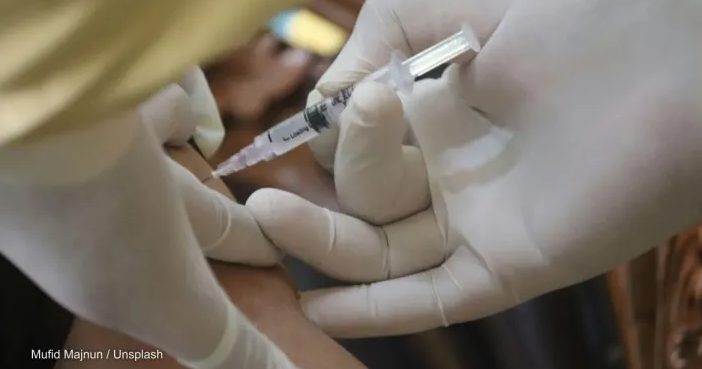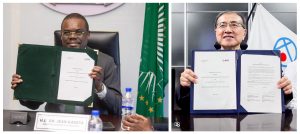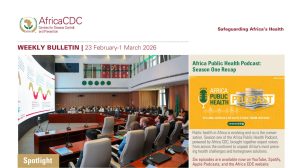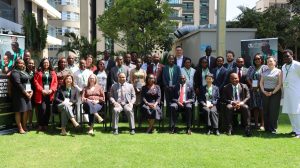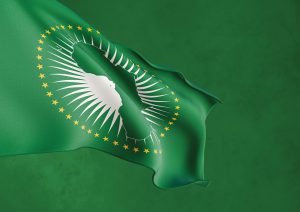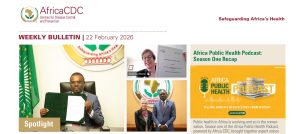The African Vaccine Manufacturing Accelerator launches today. It aims to invest at least $1 billion over 10 years to meet the global need for vaccine supply against key diseases.
By Jean Kaseya, Sania Nishtar, Chrysoula Zacharopoulou // 20 June 2024
News this month of the death of the first person with laboratory-confirmed H5N2 bird flu and the continued spread of H5N1 bird flu in animal populations serve as unwelcome reminders that new infectious risks are an unavoidable fact of life.
The question is always when and where — never if — a new outbreak will raise its head. As leaders committed to global health and sustainable development, we are only too aware of the devastating impacts that infectious disease outbreaks can have on the health, well-being, and prosperity of every community, but particularly the most vulnerable.
The continuing negotiations on the adoption of an international pandemic accord are crucial. In addition, it is critical that we keep on taking concrete steps — as countries, institutions, and multilateral organizations — to strengthen the way we prepare for, prevent, and respond to outbreaks and other public health emergencies.
Since 2005, the World Health Organization has declared seven public health emergencies of international concern. All have been due to outbreaks of infectious diseases and all but one — the 2015-2016 epidemic of Zika virus — have ultimately been brought under control through the use of vaccines. As COVID-19 showed, every day without an effective vaccine cost lives and livelihoods.
That is why we — France and Team Europe, the African Union through the Africa Centres for Diseases Control and Prevention, and Gavi, the Vaccine Alliance — are working together with other stakeholders and partners to implement the key mechanisms that will ensure rapid and equitable access to safe and effective vaccines in the event of outbreaks, epidemics, and pandemics.
In the simplest terms there are two essential prerequisites to rapid and equitable access to vaccines during public health emergencies. The first is access to adequate financing that can be rapidly mobilized. The second is access to a sufficient supply of vaccines.
Gavi already funds vaccine stockpiles for response to outbreaks of diseases such as yellow fever, cholera, meningitis, Ebola, and others, as well as using market shaping in an effort to ensure there is a secure and sustainable supply of vaccines to meet predicted demand. But what if demand outstrips supply?
Perhaps the clearest example of demand outstripping supply occurred during the COVID-19 pandemic, with inequities in vaccine access exacerbated by the clustering of vaccine manufacturing capacity in a few countries and geographical regions of the world.
International partners, including WHO, Gavi, the European Union, and France stepped up to create COVAX, a unique vaccine solidarity mechanism through which Gavi was able to deliver 2 billion doses. However, COVAX was not a magic bullet, and nowhere was this vaccine inequity felt more keenly than in Africa — a continent that currently produces just 0.1% of the world’s vaccine doses, yet accounts for nearly 20% of the world’s population.
Now, by working together, we have developed The African Vaccine Manufacturing Accelerator, an innovative solution that will serve as a “pull” incentive to catalyze investment across Africa’s vaccine value chain. AVMA aims to invest at least $1 billion over the next 10 years, and help meet the global need for greater security of vaccine supply against key diseases.
AVMA’s incentives for investment are calibrated to boost the security of supply of key vaccines, such as for cholera, yellow fever, and Ebola, while encouraging investments in manufacturing capacity that can be rapidly repurposed to produce vaccines against emerging pandemic threats. It does this by paying manufacturers that have received prequalification for priority vaccines an initial lump sum payment, followed by time-limited “accelerator payments.”
“The establishment of a sustainable African vaccine manufacturing ecosystem will require a true multistakeholder effort and considerable political will.”
Ultimately, AVMA will play a key role in supporting the African Union’s goal for the region to produce 60% of the vaccines it uses by 2040 and, we hope, catalyze the growth of a high value, high skill, and high wage sector of the economy into the bargain.
AVMA is one of the enablers identified by Africa CDC’s Partnerships for African Vaccine Manufacturing Framework for Action to support establishing a strong and sustainable vaccine manufacturing ecosystem on the continent. These enablers include training the required workforce, enhancing research and development, supporting African National Regulatory Authorities, addressing supply chain issues for raw materials, and establishing an African Pooled Procurement Mechanism.
AVMA and other innovations that stem from lessons learnt from the COVID-19 pandemic, such as the $2.5 billion Day Zero Financing Facility, are parts of a complex jigsaw that will, over time, strengthen the resilience of global and regional vaccine supply chains. This will be a long haul, and the establishment of a sustainable African vaccine manufacturing ecosystem will require a true multistakeholder effort and considerable political will to ensure that demand for African vaccines can sustain African production chains.
As we convene global leaders in Paris today for the Global Forum for Vaccine Innovation and Sovereignty, AVMA will be launched alongside Gavi’s investment opportunity for the alliance’s next strategic period through to 2030. We think the case is clear: investment in the vaccine alliance is an investment in a more equitable, inclusive, and coherent global architecture for health emergency preparedness and response.
It is an investment in one of the most effective public health solutions: vaccination. It is an investment in protecting our future.

